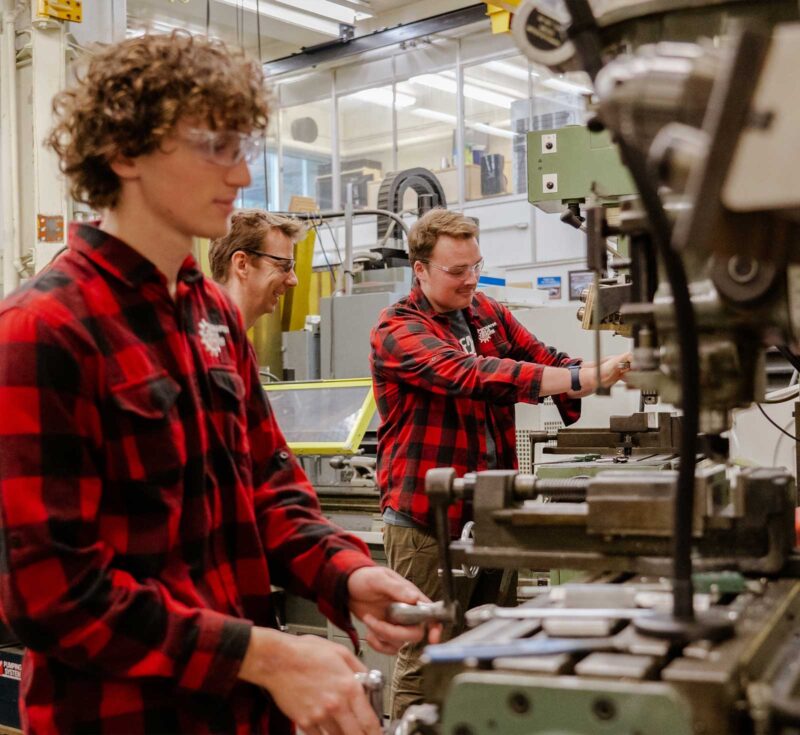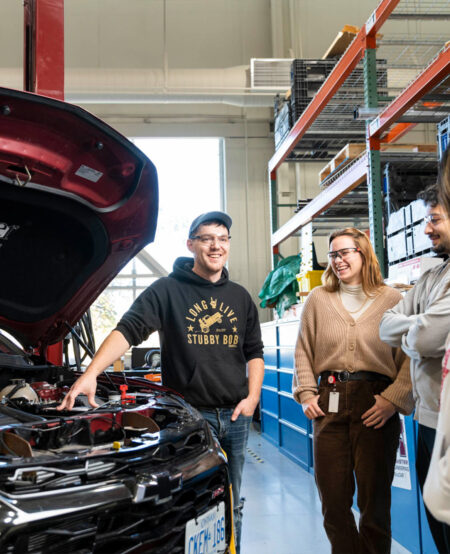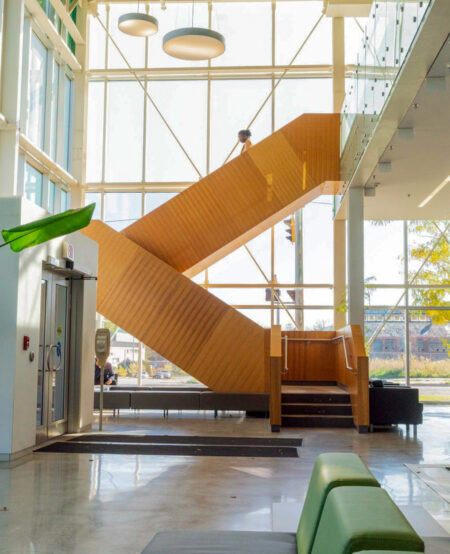- Length
- 4.5 years
- Degree
- Bachelor of Technology (Co-op Mandatory)
- Program
- Bachelor of Technology
- Options
Program highlights
In 4.5 years, students graduate with a degree from McMaster University, an advanced diploma in Chemical Engineering Technology – Process Automation and Certificate in Business from Mohawk College, and 12 months of co-op work experience.
Skill development
Develop highly tuned analytical and design skills and gain specialized knowledge in sensors, instruments, actuators, industrial networks, process control and automation, SCADA, programming, statistical process control, internet technologies, and the integration of plant floor data with business systems.
Accredited Business Degree
The program also integrates core business and management skills and is an Accredited Business Degree. Read about ACBSP Accreditation here.
We get a lot of hands-on experience in labs and design courses and have small classes, where we have the opportunity to talk more with professors. In our co-op, we interact a lot with industry and try to understand what they need to make improvements in their fields.
Admission requirements


Careersand further studies
Sample careers:
- Junior Controls & Systems Engineer, Polycon
- Manufacturing Engineer, General Motors
- Process Engineer, US Steel Canada
Further study:
- MEng Design, School of Engineering Practice & Technology, McMaster University
- MEng Electrical and Computer Engineering, McMaster University
- MEng Manufacturing, McMaster University
Mobility opportunity supported by Erasmus+
- Undergraduate students in the Biotechnology and Automation programs can participate in a two-to-three-month project-based mobility in Almeria, supervised by a Spanish professor, earning either academic credit or co-op recognition. Learn more about the Almeria partnership.

Need moreinformation?
How to apply
Understand every step, from applying, to accepting your offer and joining us on campus!
W Booth School of Engineering Practice and Technology
We blend our focus between academic theory, engineering practice and understanding how to leverage technology to create solutions and produce value for society.


